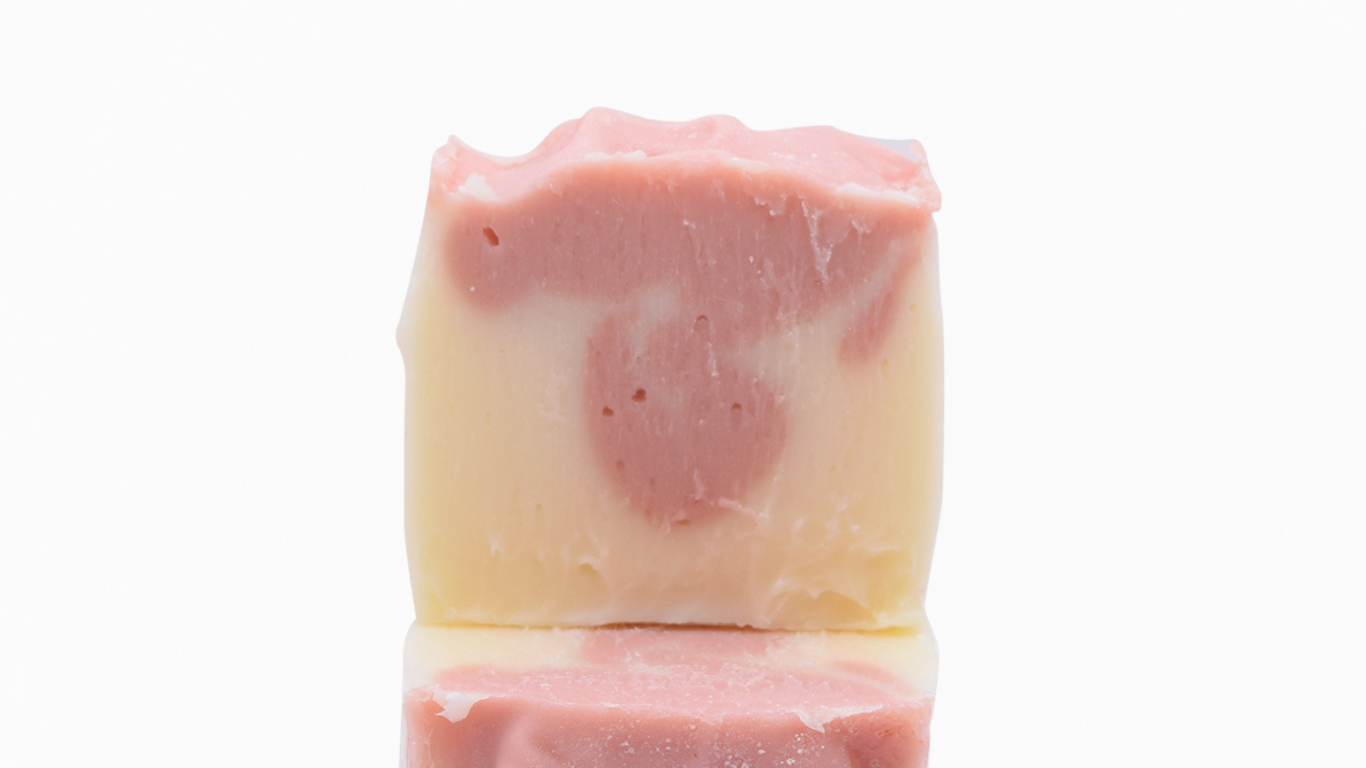|
I am sorry if I completely change how you feel about soap. I thought about whether to write this or not and finally decided to write it after a recent conversation I had with a friend about her chronic dry skin.
What kind of soap do you use to cleanse your body? A bar? Liquid soap? Other? No matter what you use, please bother to look at what its ingredients are. If you use a bar, I'm pretty confident you will see "sodium tallowate" listed in the ingredients. I want to discuss this. I am a vegetarian - initially due to upbringing that has religious and cultural roots and now because I choose to be. I care about animals and choose not to consume anything that involves killing an animal. I was not always this way - I have bought leather goods before - now I choose to buy furniture, shoes, purses etc. that are not made of leather. I do not eat meat. I do not support animal testing or any cruelty to animals so that we humans can consume more and more. If you feel the same way as I do, ditch the bar soap with sodium tallowate. Tallow is a fat derived from certain animal parts (mainly cows) and is saponified with sodium hydroxide to form soap. Given the quantities of soap manufactured, I can't begin to imagine the condition of the animals from which it is derived. Traditional soap is made by saponifying vegetable oils like olive oil. Saponification is the reaction of sodium hydroxide with the fats in oils that produce soap and other byproducts. So why is tallow (or lard - derived from pigs) used? To cut costs - it's a cheaper byproduct of the meat industry. Liquid soap is made of synthetic surfactants. The sulfate surfactants (which are now notorious) are examples. A common surfactant is cocamidopropyl betaine. I don't have a huge principle issue with liquid soap. But my main problems are a) they have very little beneficial chemicals (most surfactants are drying and irritating), contain hardly any amount of beneficial oils or humectants (chemicals that draw water to keep skin hydrated), and b) since they contain a good bit of water, you need a preservative to ensure shelf life.. Too complicated. If you see a label that says natural liquid soap, it's a lie. Tallow is natural, synthetic surfactants are not. If you suffer from chronic dry skin, start evaluating your soap. So what kind of soap should you use? I recommend a glycerin soap. This brings me to one of the great ironies of the skin care industry. Glycerin is one of the key byproducts of soap making. However, this chemical is removed from soap as it is used extensively in the beauty industry. So manufacturers can sell you a crappy bar of soap and make more money selling one of the most beneficial ingredients in soap separately. Glycerin soap is soap from which the glycerin has not been removed. Glycerin is a humectant - it loves water and draws moisture to your skin when t is present on skin. It is almost impossible to find commercial soaps containing glycerin. A couple of brands I have seen is Kiss My Face olive oil soap and the famous Pears (that got into a controversy for changing its recipe adding a bunch of unhealthy ingredients). I encourage you to seek out hand made soap - there are plenty of people who make amazing hand made soaps - these will have the glycerin in them and your skin will thank you for the trouble. Or you can be like me and buy melt and pour glycerin base and customize this to your liking by adding oils, essential oils etc. Or you could learn a new skill and make your own soap. All you need is water, sodium hydroxide, and an oil! But this needs a bit of skill and caution. It's really sad that the beauty industry peddles cheap unhealthy stuff at ridiculously marked up prices and makes all kinds of claims that are false. We need to get smarter about reading the ingredients and making good conscious choices just like we would for food.
0 Comments
|
|
|
© Saroya Natural 2023 | All rights reserved.
Website designed by Aadi M |
Contact Us |


 RSS Feed
RSS Feed